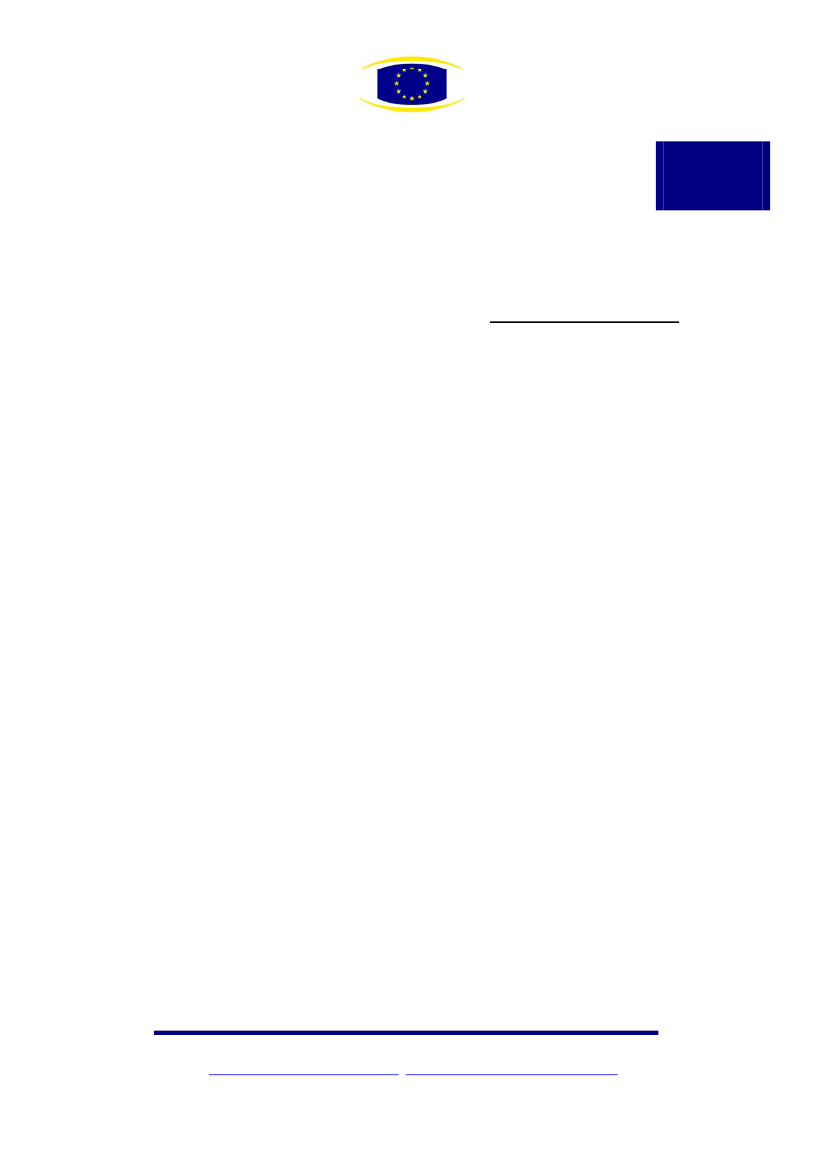Det Udenrigspolitiske Nævn 2013-14
UPN Alm.del Bilag 181
Offentligt
COU CIL OFTHE EUROPEA U IO
EN8763/14(OR. en)PROVISIO AL VERSIOPRESSE 219PR CO 21
PRESS RELEASE3309th Council meeting
Foreign AffairsLuxembourg, 14 April 2014PresidentCatherine AshtonHigh Representative of the Union for Foreign Affairs andSecurity Policy
PRESSRue de la Loi 175 B – 1048 BRUSSELS Tel.: +32 (0)2 281 6319 / 6319 Fax: +32 (0)2 281 8026
8763/14
1
E
PROVISIO AL VERSIO
14 April 2014
Main results of the Council
The Council condemned actions undertaken by armed individuals in cities of Eastern Ukraine.These attempts at destabilising Ukraine must come to an end. The Council also decided to expandthe list of those subject to asset freeze and visa ban.The Council reiterated its strong support for Ukraine's unity, sovereignty, independence andterritorial integrity, and called upon Russia to do likewise. It demanded Russia to call back itstroops from the Ukrainian border and immediately withdraw the mandate of the FederationCouncil to use force on Ukrainian soil.Catherine Ashton, EU High Representative for Foreign Affairs and Security Policy, said:"Anyfurther action aimed at destabilising Ukraine must stop. It is crucial that Russia and Ukraine engagein a meaningful dialogue to find a political solution. I will meet the Foreign Ministers of the UnitedStates, Russia and Ukraine this Thursday in Geneva. The purpose of this meeting is to start adialogue on how to deescalate the situation in Ukraine and to ensure that peace and stability returnsto the whole of Ukraine."The Council also signalled that the EU is ready to assist Ukraine in the field of civilian securitysector reform. All options will be examined, including a possible mission under the CommonSecurity and Defence Policy, and a decision will be taken at the next Foreign Affairs Council.In addition, the Council approved macro-financial assistance to Ukraine to support the country'seconomic stabilisation and reforms. € 1 billion can be made available to contribute to coveringUkraine's urgent balance-of-payments needs as identified in the government's economic programmesupported by the IMF. This brings the total amount to € 1.6 billion.The Council also adopted temporary tariff cuts on Ukrainian goods, ahead of the application of theAssociation Agreement. The reduction of customs duties is expected to enter into force on 23 April.The Council moreover strengthened EU sanctions against persons responsible for misappropriatingUkrainian state funds. It targeted four additional persons in Ukraine with an asset freeze.
8763/14
2
E
PROVISIO AL VERSIO
14 April 2014
CO TE TS1
PARTICIPA TS................................................................................................................................ 5
ITEMS DEBATEDSyria ..................................................................................................................................................... 7Bosnia and Herzegovina .................................................................................................................... 10Ukraine............................................................................................................................................... 12OTHER ITEMS APPROVEDFOREIG4 AFFAIRS––––––––––Restrictive measures - Ukraine.............................................................................................................................. 16Ukraine – Macro-financial assistance – Trade measures....................................................................................... 16Central African Republic....................................................................................................................................... 17Relations with Tunisia........................................................................................................................................... 19Restrictive measures - Republic of Guinea ........................................................................................................... 19Restrictive measures - Myanmar / Burma ............................................................................................................. 19Participation of Azerbaijan in EU programmes..................................................................................................... 19Comprehensive partnership and cooperation agreement with Indonesia............................................................... 19Association Agreement with Chile........................................................................................................................ 20Political dialogue and cooperation agreement with Latin American countries ..................................................... 20
COMMO4 SECURITY A4D DEFE4CE POLICY–EU exercise policy................................................................................................................................................. 20
1
ŸWhere declarations, conclusions or resolutions have been formally adopted by the Council, this is indicatedin the heading for the item concerned and the text is placed between quotation marks.ŸDocuments for which references are given in the text are available on the Council's Internet site(http://www.consilium.europa.eu).ŸActs adopted with statements for the Council minutes which may be released to the public are indicated byan asterisk; these statements are available on the Council's Internet site or may be obtained from the PressOffice.
8763/14
3
E
PROVISIO AL VERSIODEVELOPME4T COOPERATIO4––
14 April 2014
European Year of Development 2015 ................................................................................................................... 20EU development assistance to Central Asia .......................................................................................................... 21
ECO4OMIC A4D FI4A4CIAL AFFAIRS––European Investment Bank - External lending ...................................................................................................... 23Market abuse ......................................................................................................................................................... 23
JUSTICE A4D HOME AFFAIRS–Multiannual Financial Framework regarding Home Affairs ................................................................................. 24
E4LARGEME4T–Association with Serbia......................................................................................................................................... 24
8763/14
4
E
PROVISIO AL VERSIO
14 April 2014
PARTICIPA TS
High Representative
Ms Catherine ASHTONBelgium:Mr Didier REYNDERSBulgaria:Mr Kristian VIGENINCzech Republic:Mr Lubomir ZAORÁLEKDenmark:Mr Martin LIDEGAARDGermany:Mr Michael ROTHEstonia:Mr Urmas PAETIreland:Mr Eamon GILMOREGreece:Mr Evangelos VENIZELOSSpain:Mr Alfonso DASTIS QUECEDOFrance:Mr Laurent FABIUSCroatia:Ms Vesna PUSIĆItaly:Ms Federica MOGHERINICyprus:Mr Ioannis KASOULIDESLatvia:Mr Edgars RINKĒVIČSLithuania:Mr Linas A. LINKEVIČIUSLuxembourg:Mr Jean ASSELBORNHungary:Mr János MARTONYIMalta:Mr George VELLAetherlands:Mr Frans TIMMERMANSAustria:Mr Sebastian KURZHigh Representative of the Union for Foreign Affairs andSecurity PolicyDeputy Prime Minister and Minister for Foreign Affairs,External Trade and European AffairsMinister for Foreign AffairsMinister for Foreign AffairsMinister for Foreign AffairsMinister of State, Ministry of Foreign AffairsMinister for Foreign AffairsTánaiste (Deputy Prime Minister) and Minister forForeign Affairs and TradeDeputy Prime Minister, Minister for Foreign AffairsPermanent RepresentativeMinister for Foreign AffairsFirst Deputy Prime Minister, Minister for Foreign andEuropean AffairsMinister for Foreign AffairsMinister for Foreign AffairsMinister for Foreign AffairsMinister for Foreign AffairsMinister for Foreign AffairsMinister for Foreign AffairsMinister for Foreign AffairsMinister for Foreign AffairsFederal Minister for European and International Affairs
8763/14
5
E
PROVISIO AL VERSIOPoland:Mr Radosław SIKORSKIPortugal:Mr Bruno MAÇÃESRomania:Mr Titus CORLĂȚEANSlovenia:Mr Karl ERJAVECSlovakia:Mr Miroslav LAJČÁKFinland:Mr Erkki TUOMIOJASweden:Mr Carl BILDTUnited Kingdom:Mr William HAGUE
14 April 2014
Minister for Foreign AffairsState Secretary for European AffairsMinister for Foreign AffairsDeputy Prime Minister, Minister for Foreign AffairsDeputy Prime Minister, Minister for Foreign AffairsMinister for Foreign AffairsMinister for Foreign AffairsFirst Secretary of State, Secretary of State for Foreign andCommonwealth Affairs
Commission:Mr Štefan FÜLEMr Günther OETTINGER
MemberMember
8763/14
6
E
PROVISIO AL VERSIOITEMS DEBATEDSyria
14 April 2014
Over lunch, ministers exchanged views on the latest developments in the Syrian crisis. The Counciladopted the following conclusions:"1.The EU reiterates that there can only be a political solution to the conflict in Syria that hasnow lasted for more than three years and underscores the importance of reinvigorating theGeneva process. The regime's constant obstruction of the talks, its decision to list membersof the opposition negotiating team as terrorists, and its rejection of the GenevaCommuniqué led to the failure of the two first rounds of the negotiations. The EU urgesthose with influence on the Syrian regime to put pressure on it to engage much moreconstructively in the talks. The EU commends the attitude of the opposition delegation ledby the National Coalition of Syrian Revolutionary and Opposition Forces (SOC)throughout the negotiations and welcomes their continued commitment to the politicalprocess.The EU reiterates its support to the UN and the Joint Special Representative Brahimi andcalls on the Syrian regime to show a clear commitment to the negotiation agenda and themethod of work, in particular treating in parallel the issues of terrorism and transition, asoutlined in Brahimi's report to the UNSC and the UNGA on 13 and 14 March. The EUcalls upon the Syrian regime to respect all elements of the Geneva Communiqué, whichwas enshrined in the UNSC resolutions 2118 and 2139.The EU reiterates the position that any elections in Syria should only take place within theframework of the Geneva Communique and through a genuine political process where alsowomen and civil society should have an active and a meaningful role. Any elections,presidential or other, organised by the regime outside this framework, conducted in themidst of conflict, only in regime-controlled areas and with millions of Syrians displacedfrom their homes would be a parody of democracy, have no credibility whatsoever, andundermine efforts to reach a political solution. The EU calls on other countries andorganisations, particularly those which had taken part in the Montreux conference, to adoptthe same position.2.The EU notes with great concern the attempts of the regime to circumvent EU restrictivemeasures in order to secure new resources and continue financing its policy of violence.The EU will act swiftly against persons and entities which are facilitating thecircumvention of EU sanctions and will take appropriate steps to keep existing sanctionseffective. The EU will continue its sanctions policy targeting the regime as long asrepression continues and will explore what more can be done to address those responsiblefor human rights violations or international humanitarian law violations.
8763/14
7
E
PROVISIO AL VERSIO3.
14 April 2014
The EU welcomes the 7th report of the independent international Commission of Inquiryon the Syrian Arab Republic published on 5 March and its recommendations. The EUstrongly condemns the war crimes and crimes against humanity perpetrated by governmentforces, pro-government militias, terrorist and other non-state armed groups, and notes thatthe report makes clear that the Syrian regime and its affiliates are responsible for a largenumber of violations and abuses. In that context, the EU is outraged by the continuedbarrel bombings of civilian areas by the regime and its use of starvation sieges as a tacticof war. The EU recalls that all responsible for such acts must be held accountable and thatthere can be no impunity for any such violations and abuses. The EU calls on the SecurityCouncil to urgently address the prevailing culture of impunity and refer the situation inSyria to the International Criminal Court.The EU deplores the grave abuses committed by the Islamic State of Iraq and the Levant(ISIL) and other terrorist groups with links to al-Qaeda such as the Al-Nusra Front. TheEU condemns the regime's decision to enlist the military support of foreign groups,including the military wing of Hezbollah, al-Quds Force and Liwa Abu al-Fadhal al-Abbas. The EU welcomes the SOC's rejection of terrorism and their consistentcondemnation of terrorist acts and notes that the Syrian opposition is leading the fightagainst ISIL. The EU calls on all relevant parties to halt their support to these groups and isdetermined to engage with third countries to deal effectively with terrorism and thefinancing of the flows of foreign fighters.The EU deplores the lack of progress on the implementation of the UNSC resolution 2139as reported in the first 30-day review presented to the UNSC by the UNSG on 28 March.The EU strongly condemns the continuing artillery shelling and aerial bombardment by theregime, including the use of barrel bombs. It calls on all parties to immediately and withoutfurther delay comply with the resolution, especially on the issue of humanitarian access,which should be unfettered rather than granted occasionally on a case by case basis. Allparties have, in particular, an obligation to protect schools and hospitals and respect theircivilian character, as well as to ensure safe passage for medical personnel, hospitals andambulances. In this respect, the EU recognises the primary responsibility of the regime formaintaining excessive administrative and other obstacles to effective aid delivery,especially to non-regime held areas. Continued withholding of consent to basic reliefoperations, across borders and across the lines of conflict, is arbitrary and unjustified. TheEU urges UN agencies and humanitarian organisations to be allowed to bring humanitarianassistance to those who need it most in all areas of the country, including hard-to-reach andbesieged areas, in line with the humanitarian imperative. To facilitate this the UN andtheir implementing partners should be allowed to deliver relief items through the mostdirect routes and most efficient means across conflict lines and across all relevant bordercrossing points. The EU calls for future reports by the UNSG to contain robust and specificdemands for access in response to blockages identified on the ground, and calls upon theUNSC to take further measures if non-compliance continues.The EU supports the work of the High Level Group on humanitarian challenges and theoverall humanitarian aid coordination by OCHA.
4.
5.
8763/14
8
E
PROVISIO AL VERSIO6.
14 April 2014
The EU is concerned with cases of forced surrender, labelled as local ceasefires, imposedby the regime through starvation sieges. The EU calls on the regime to allow effectivethird-party monitoring of ceasefires to sustain them, to allow safe and unhinderedevacuations of civilians on a voluntary basis and the passage of humanitarian convoys andpersonnel.The EU is increasingly concerned about the worsening plight of all vulnerable groups, andethnic and religious minorities, noting that Christians are increasingly targeted by extremistgroups.The EU calls on all parties, in particular the Syrian regime, to ensure the protection of thecivilian population and calls on all parties to the conflict to adhere to their obligationsunder international humanitarian and human rights law.The EU welcomes the strong commitment of the SOC to a democratic and pluralist Syria,where all minorities and vulnerable groups have a place.
7.
8.
The EU continues to commend those neighbouring countries, notably Lebanon and Jordan,which continue to keep their borders open and provide safe haven for refugees from Syria,including Palestinians. The EU pledges to continue its support to the governments and hostcommunities of Syria's neighbours so they can deal effectively with the increasing flow ofrefugees and build up their resilience. The EU is supporting comprehensive integratedresponse plans to preserve stability in these countries. Further to the Kuwait 2 conferencein January 2014 the EU continues to mobilise humanitarian and development aid inresponse to the crisis and encourages partners to provide sustained financing for Syrianrefugees and host communities.The EU notes the UN appeals for Syria remain seriously underfunded and calls for theinternational community to consider what more it can do to meet the remaining fundinggap. With increasing needs and limited resources, effective donor coordination is evermore important to ensure maximum impact of assistance. In this context, the Commissionwill continue to convene and strengthen the international core donor group on coordinationof the response to the Syrian crisis. The EU welcomes the continuing efforts andpreparations for early recovery activities of the working group on economic recovery anddevelopment of the Friends of the Syrian people. Where feasible the EU is committed toincrease its support to areas that are not under regime's control by all possible channels onthe basis of a coordinated approach.
8763/14
9
E
PROVISIO AL VERSIO9.
14 April 2014
The Council reiterates its call for a swift completion of chemical weapons transfers, whichhave suffered delays, and reiterates the call to the Syrian regime to fulfil its obligationsstemming from the UNSC Resolution 2118 and further OPCW decisions to have itschemical weapons arsenal, including the production facilities, destroyed by the end of June2014. All outstanding questions surrounding Syria’s declaration must be addressed. Thechemical weapons program must be completely eliminated and Syria must demonstrate tothe international community that it is complying with all its obligations, both under UNSCresolution 2118 and the Chemical Weapons Convention.The EU stresses once again that those responsible for the use of chemical weapons in theRif Damascus on August 21, 2013 must be held accountable."
Bosnia and HerzegovinaOver lunch, ministers held an in-depth debate on the situation in Bosnia and Herzegovina. TheCouncil adopted the following conclusions:"1.The Council reaffirms its unequivocal commitment to the territorial integrity of Bosnia andHerzegovina as a sovereign and united country. The Council also reiterates its unequivocalcommitment to Bosnia and Herzegovina's EU perspective. In this regard, it condemns asunacceptable secessionist and divisive rhetoric and ideas.In line with its conclusions of December 2013, the Council recalls its serious concern thatthe EU integration process in Bosnia and Herzegovina (BiH) has stalled due to the lack ofpolitical will on the part of the BiH politicians and the continued use of divisive rhetoric.As other countries of the region make progress, Bosnia and Herzegovina is lagging behind.The Council heard the public protests and calls by BiH citizens to improve the social andeconomic situation in the country. All BiH citizens, including the younger generation, needto be given new opportunities. It strongly urges the BiH institutions and elected leaders toreach out to the people, engage with civil society and provide responsible and immediateanswers to their legitimate concerns. The Council emphasizes that it is the collectiveresponsibility of all BiH political leaders. Ahead of the general elections in October 2014,more needs to be done, not less.
2.
3.
8763/14
10
E
PROVISIO AL VERSIO4.
14 April 2014
The Council welcomes the visits of the HR/VP to Bosnia and Herzegovina on 12 March2014 and of Commissioner Füle on 17 of February 2014 and supports the continuous EUhigh level engagement in BiH. In line with previous Council conclusions, it reaffirms thatthe key requirements and criteria for BiH progress towards the EU need to be fully met.The Council supports the broadening of the EU agenda and engagement towards thecountry. In the short term, the Council urges the BiH institutions and leadership to focus asa matter of immediate priority on the following areas: to reach out actively to civil societyand youth and take into account the needs of the citizens; to focus on socio-economicissues, in particular to tackle the very high unemployment, improve the co-ordination oneconomic and fiscal policies, and create a better environment for business; and to translatethe legitimate concerns of the BiH people into legislative and fully implemented initiatives,including strengthening the rule of law, anticorruption and financial accountabilitymeasures, and protecting human rights.The Council underlines the EU's readiness to support these immediate efforts now. Itwelcomes Commission initiatives to improve economic governance and strengthencompetitiveness as well as stimulate economic growth. As an immediate action, it supportsthe launch on the ground of a "Compact for Growth", aimed at assisting the BiHinstitutions in identifying concrete socio-economic structural reforms in order toreinvigorate the economy and spur the creation of jobs in the short to mid-term. Itwelcomes and supports the central role of the EUSR/HoD in assisting BiH in these efforts,which need to be conducted in close coordination with our key international partners, inparticular international financial institutions to ensure complementarity, efficient allocationof resources and building synergies. The Council also supports broadening the StructuredDialogue on Justice to other rule of law issues, and in particular to anticorruption issues. Italso underlines the need to accelerate the implementation of previously agreed EU-fundedprojects through IPA 2007-2013 and welcomes the establishment of a joint EU-BiHworking group to that effect. The establishment of an efficient coordination mechanism onEU matters is crucial both for IPA and implementation of the Interim Agreement. TheCouncil regrets that the inability of the Bosnian authorities to meet this EU requirementhas already led to a loss of IPA funds. The Council expresses its concern that the last fivesubcommittees under this agreement could not take place so far due to BiH internaldisagreements and urges the BiH Council of Ministers to agree on a way forward. TheCouncil calls on BiH to constructively engage on the adaptation of the InterimAgreement/Stabilisation and Association Agreement, on the basis of traditional trade. TheCouncil expects the BiH authorities to engage constructively in these initiatives.Beyond these areas of immediate attention, the Council calls on the BiH leadership toengage as soon as possible after the October elections on a broader set of issues in order toaddress the challenges the country continues to face as it progresses towards the EU. Inparticular, it remains crucial that the BiH leaders undertake reforms aimed at improving theefficiency and functionality of BiH institutions at all levels. Implementation of the Sejdic-Finci judgment of the European Court of Human Rights also remains to be addressed. TheCouncil reaffirms its determination to actively and intensively engage in support of thisprocess, in close coordination and cooperation with its main international partners."
5.
6.
8763/14
11
E
PROVISIO AL VERSIOUkraine
14 April 2014
The Council took stock of latest events in Ukraine. After discussion, it adopted the followingconclusions:"1.The European Union condemns actions undertaken by armed individuals in cities ofEastern Ukraine. These attempts at destabilising Ukraine must come to an end. TheCouncil calls on all parties to engage in a dialogue in view of a peaceful solution. TheCouncil decides on expanding the list of those subject to assets freeze and visa ban.The Council reiterates its strong support for Ukraine's unity, sovereignty, independenceand territorial integrity, and calls upon Russia to do likewise and to repudiate the latestlawless acts in Eastern Ukraine and to contribute to stabilize the situation. It demandsRussia to call back its troops from the Ukrainian border and immediately withdraw themandate of the Federation Council to use force on Ukrainian soil. Any threat or use offorce against Ukraine or any other countries is not acceptable and must stop immediately.The EU calls on all parties to keep utmost restraint and commends the Ukrainianauthorities for pursuing their law and order operations in a measured manner andencourages the government in Kyiv to contribute further to reducing tensions.2.The EU reiterates its strong condemnation of the illegal annexation of Crimea andSevastopol to the Russian Federation and will not recognise it. The EU welcomes theadoption of the resolution of the United Nations General Assembly No. 68/262. TheCouncil looks forward to the Commission's evaluation of the legal consequences of theannexation of Crimea and to the related proposals for economic, trade and financialrestrictions regarding Crimea.The EU reiterates the importance of Russia's and Ukraine's engagement in a meaningfuldialogue, including through the establishment of a multilateral mechanism, with a view tofinding a political solution, based on full respect for Ukraine's sovereignty and territorialintegrity, including the right of Ukraine to decide on its own constitution and politicalfuture. The European Union is ready to participate in such an international mechanism. Inthis context, the Council welcomes the forthcoming meeting with the participation of theHigh Representative and Foreign Ministers of Ukraine, Russia and the US, as a possiblestart of a substantial de-escalation process. The Council expresses the view that possibleoptions in order to stabilise the economic situation in Ukraine could also be discussed atthis upcoming meeting. The Council calls on the Russian Federation to demonstrate withsupportive measures its readiness to participate in stabilising the Ukrainian economy.
3.
8763/14
12
E
PROVISIO AL VERSIO4.
14 April 2014
The Council supports the work already undertaken by the OSCE Monitoring Mission,which is of utmost importance in monitoring developments in Ukraine and will continue toprovide its support to this mission. The Council shares the concerns expressed byrepresentatives of the OSCE and the Council of Europe about current restrictions on theirability to observe the situation in the area of human rights, including of persons belongingto national minorities, in Crimea.The Council is ready to assist Ukraine in the field of civilian security sector reform,support of police and rule of law. In this regard the Council tasks the EEAS to deploy anexpert mission to prepare for appropriate assistance complementary with other on-goingefforts and elaborate a Political Framework for Crisis Approach (PFCA), examining alloptions, including through a possible CSDP mission, with a view to a decision on furtherEU action at its next meeting.The Council recalls that any further steps by the Russian Federation to destabilise thesituation in Ukraine would lead to additional and far reaching consequences for relations ina broad range of economic areas between the European Union and its Member States, onthe one hand, and the Russian Federation, on the other hand. In this respect, the Councilnotes that the preparatory work by the Commission and Member States is underway onpossible targeted measures, as requested by the European Council in March so that furthersteps can be taken should events require.The Council encourages Ukraine to continue to move ahead with its course of politicalreforms, as planned and announced by the Ukrainian Government, including notably theconstitutional reform. The EU welcomes the will of the Ukrainian government toimplement its commitments to ensure the representative nature and inclusiveness ofgovernmental structures, reflecting regional diversity, to ensure the full protection of therights of persons belonging to national minorities, to investigate all human rights violationsand acts of violence and to fight extremism. In this context, the Council welcomes theinauguration of the International Advisory Panel of the Council of Europe on 9 April.The Council welcomes the recent parliamentary resolution calling for the immediatedisarmament of all illegal self-defence forces and looks forward to its implementation. TheCouncil strongly supports the holding of free and fair Presidential elections on 25 May.The EU Member States will actively participate in the OSCE observation mission. The EUand its Member States stand ready to assist the Ukrainian government in building trustacross the country.
5.
6.
7.
8.
The Council reiterates the EU's commitment to sign the remaining provisions of theAssociation Agreement, including the Deep and Comprehensive Free Trade Area, as soonas possible after the presidential elections on 25 May. The Council adopted today theRegulation on the reduction or elimination of customs duties on goods originating inUkraine, which will represent a meaningful support measure to Ukraine until 1 November2014, pending signature and provisional application of the DCFTA.
8763/14
13
E
PROVISIO AL VERSIO9.
14 April 2014
The Council reiterates its commitment to stand by Ukraine and to provide strong financialsupport to its economic and financial stabilisation, recalling the critical importance of IMFsupport and welcoming the staff level agreement reached between the IMF and theUkrainian authorities on 27 March. The Council looks forward to the decision of the IMFExecutive Board on a new Stand-By Arrangement. The Council adopted today theDecision on the macro-financial assistance for Ukraine establishing clear conditions for itsfuture disbursement. This will bring the total amount to EUR 1.6 billion.The Council welcomes the creation of the Support Group for Ukraine which will work onthe implementation of the "European Agenda for reform". At the same time, the Councilrecalls the importance for Ukraine to swiftly implement an ambitious set of structuralreforms, including the fight against corruption, public finance management and budgettransparency. The EU calls on all interested parties to contribute to the further stabilisationand development of Ukraine.The Council confirms the EU's readiness to explore ways to assist Ukraine in securing itsenergy supply through further diversification, including through the rapid enhancement ofreverse flow capacities, enhanced energy efficiency, and effective interconnections withand within the European Union. Such assistance must be combined with Ukraine's effortsto reform and modernise its energy sector, in line with Ukraine's commitments in theEnergy Community Treaty.The Council takes note of the letter of President Putin of 10 April to several EU MemberStates. The Council asks the European Commission to reply, on the basis of consultationswith Member States, to the President of the Russian Federation on behalf of EU and itsMember States, in order to agree on consultations with Russia and Ukraine with a view toensuring security of supply and transit.The Council expresses deep concern regarding the unilateral increase of gas prices appliedto Ukraine and expresses a firm conviction that all differences of views on the price andconditions of gas supplies should be solved through negotiations and available legalmechanisms, with a view to stabilising the economic situation in Ukraine. Energy relationsmust be based on reciprocity, transparency, fairness, non-discrimination, openness tocompetition and continued cooperation to ensure a level playing field for the safe andsecure supply of energy.
10.
11.
Georgia and the Republic of Moldova12.Acknowledging the efforts and achievements of the Republic of Moldova in that respect,the Council welcomes the Regulation 259/2014 of 3 April 2014 on the visa-free travel forthe citizens of the Republic of Moldova holding biometric passports starting from 28 April2014.
8763/14
14
E
PROVISIO AL VERSIO13.
14 April 2014
The European Union reaffirms its support for political association and economicintegration with Georgia and the Republic of Moldova and looks forward to early signatureof the Association Agreements, including Deep and Comprehensive Free Trade Areas nolater than June 2014. It recalls that such association and integration is compatible withenhanced relations of Georgia and the Republic of Moldova with all their partners. TheEuropean Union is confident that further deepening of EU-Georgia and EU-Republic ofMoldova relations will have a positive impact on stability and socio-economicdevelopment, for the benefit of all the citizens of the two countries. The EU encouragesGeorgia and the Republic of Moldova to continue implementing reforms as part of theircommitment to further strengthen the political association and economic integration withthe EU."
In addition, the Council approved additional macro-financial assistance of up to € 1 billion forUkraine, adopted EU trade preference for Ukrainian products and reinforced EU restrictivemeasures targeting persons responsible for the misappropriation of Ukrainian state funds, seebelow.
8763/14
15
E
PROVISIO AL VERSIOOTHER ITEMS APPROVEDFOREIG AFFAIRSRestrictive measures - UkraineThe Council reinforced EU restrictive measures targeting persons responsible for themisappropriation of Ukrainian state funds. For more details, seepress release.Ukraine – Macro-financial assistance – Trade measures
14 April 2014
The Council approved two key measures amongst a package of proposals aimed at providingeconomic and financial support to Ukraine.It adopted a decision providing up to €1bn in macro-financial assistance to Ukraine to support itseconomic stabilisation and its structural reform agenda, supplementing resources made availableunder a financial arrangement with the IMF (8346/14).It also adopted a regulation granting unilateral trade preferences to Ukraine, providing for thetemporary reduction or elimination of customs duties in accordance with a schedule of concessionsset out in an annex to the EU-Ukraine association agreement (73/14).The support package was announced by the Commission on 5 March in response to theunprecedented developments in Ukraine, and is intended to assist with the country's politicaltransition and encourage political and economic reforms. The package was endorsed by theEuropean Council on 6 March.For details, see8870/14.
8763/14
16
E
PROVISIO AL VERSIOCentral African RepublicThe Council adopted the following conclusions on the Central African Republic:"1.
14 April 2014
L'Union Européenne (UE) reste fortement préoccupée par la crise sécuritaire ethumanitaire en RCA. Elle réaffirme son engagement, exprimé dans les conclusions duConseil le 17 mars 2014, à maintenir sa mobilisation en faveur du règlement de la crise enRépublique Centrafricaine (RCA) dans le cadre d’une approche globale. Le Conseil saluela tenue de la réunion spéciale sur la RCA organisée à Bruxelles le 2 avril en marge duSommet UE-Afrique en présence de la Présidente de la transition, Madame CatherineSamba-Panza, dans le contexte de la nécessaire mobilisation de l’ensemble de lacommunauté internationale pour venir en aide à la RCA et pour soutenir les efforts desautorités de transition en faveur de la stabilisation de la situation sécuritaire et d'assurer leretour du pays à l'ordre constitutionnel. Elle réitère son inquiétude quant au risque de voirle conflit centrafricain affecter les pays voisins de la RCA et appelle au respect del'intégrité territoriale du pays.Le Conseil se félicite du lancement de l’opération militaire PSDC EUFOR RCA et appelleà une mobilisation continue et renforcée pour finaliser le processus de génération de forceet atteindre rapidement la pleine capacité opérationnelle. Le Conseil note que leCommandant de l’opération EUFOR RCA est autorisé à procéder à l’exécution de cetteopération militaire de transition et l’invite à la déployer promptement, en coopérationétroite avec la force africaine MISCA (Mission internationale de soutien à la Centrafrique)et l’opération fran§aise Sangaris. Cette opération doit contribuer, par un appui temporairepouvant aller jusqu’à 6 mois, à fournir un environnement sécurisé, dans la région deBangui, en vue de passer le relais a l’opération de l’Union Africaine – MISCA, ou à uneopération de maintien de la paix de l’ONU.L'UE prend acte de la décision de la République du Tchad de retirer son contingentmilitaire de la MISCA et encourage l'UA à maintenir la capacité opérationnelle de laMISCA au niveau nécessaire, dans le respect du nombre de troupes établi. L'UE réaffirmeson engagement en faveur de la MISCA et renouvelle son appel à la mobilisation urgentedes moyens financiers annoncés à l'occasion de la conférence des donateurs pour soutenirla MISCA organisée par l'Union africaine le 1er février 2014. A cet égard, l'UE est en trainde mobiliser un nouveau financement à hauteur de 75 million EUR en faveur de la MISCAà travers la Facilité de paix pour l'Afrique.
2.
3.
8763/14
17
E
PROVISIO AL VERSIO4.
14 April 2014
L’UE se félicite de l’adoption à l'unanimité le 10 avril 2014 de la résolution 2149 duConseil de Sécurité des Nations Unies (CSNU) créant la MINUSCA. L’UE soutient ledéploiement rapide de la MINUSCA, dont le volet militaire et policier prendra le relais dela MISCA au 15 septembre et souligne l'importance d'une coordination étroite entre lespartenaires, notamment les autorités centrafricaines, l'ONU, l'Union africaine (UA), l'UE etla France, pour faciliter la transition. L'UE souscrit aux appels exprimés dans cetterésolution à traduire devant la justice ceux qui sont responsables de crimes de guerre, decrimes contre l’humanité ou de graves violations des droits de l’Homme en RCA. A cetégard, en tenant compte des activités en cours, l'UE invite toutes les parties à coopérer avecla Cour Pénale Internationale.L'UE invite les autorités de transition centrafricaines à poursuivre le processus detransition, en promouvant le dialogue politique et la réconciliation nationale, jusqu’auxélections prévues d’ici février 2015, et rappelle son engagement à soutenir la préparationde ces élections.L'UE réaffirme son engagement en faveur du rétablissement de l'État de droit, de laprotection des droits de l’Homme, du droit international humanitaire et de la populationcivile, de la réconciliation nationale et du dialogue interconfessionnel en RCA, s’agissanten particulier de la remise en marche de la chaîne pénale pour lutter contre l'impunité, de laréforme du secteur de la sécurité (RSS) et du soutien au désarmement, démobilisation etréintégration (DDR). Dans ce contexte, l'UE salue la signature du communiqué final de laConférence Inter-Religieuse pour la Paix et la Réconciliation le 8 avril dernier à Bangui,qui constitue une étape importante vers la paix et la stabilité. L'UE prend note de l'enquêtepréliminaire en cours des Nations Unies pour établir les responsabilités liées aux incidentsdu 29 mars à Bangui qui ont causé plusieurs morts et blessés dans la population civile.Face à la crise humanitaire, l’UE réaffirme son engagement à apporter une aide d’urgenceaux populations affectées en RCA. Elle appelle l'ensemble de la communautéinternationale à confirmer et augmenter les financements en faveur de ces populations, àl'intérieur de la RCA comme dans les pays voisins. Elle réitère sa préoccupation pour lesconditions des populations civiles à risque, dépendantes pour leur survie de la protection etde l'assistance qui leur seront apportées. Elle rappelle que toutes les parties en présencedoivent assurer l’accès immédiat, sûr et sans entrave des acteurs humanitaires œuvrant enRCA, dans le respect du droit international humanitaire et des principes humanitaires.L'UE réitère son soutien financier et technique aux autorités de transition, afin decontribuer à la reconstruction de l’Etat centrafricain, et à la relance économique du pays etafin de venir en appui aux populations."
5.
6.
7.
8.
8763/14
18
E
PROVISIO AL VERSIORelations with Tunisia
14 April 2014
The Council adopted the EU position for the 10th Association Council with Tunisia, to take placeon 14 April in Luxembourg.Restrictive measures - Republic of GuineaThe Council amended EU restrictive measures against the Republic of Guinea. It lifted the armsembargo and the prohibition on the supply of equipment which might be used for internalrepression. Travel bans and asset freezes against five persons identified by the InternationalCommission of Inquiry as responsible for the 28 September 2009 events in Guinea will remain inforce.Restrictive measures - Democratic People's Republic of KoreaThe Council amended the restrictive measures against the Democratic People's Republic of Koreaso as to take account of changes agreed at the United Nations.Restrictive measures - Myanmar / BurmaThe Council extended the EU's restrictive measures against Myanmar/Burma by one year, i.e. until30 April 2015. The sanctions consist in an arms embargo and an embargo on equipment that may beused for internal repression.Participation of Azerbaijan in EU programmesThe Council adopted decisions on the signing, provisional application and conclusion of a protocolto the EU-Azerbaijan Partnership and Cooperation Agreement concerning a Framework Agreementbetween the EU and Azerbaijan on general principles for the participation of Azerbaijan in Unionprogrammes.Comprehensive partnership and cooperation agreement with IndonesiaThe Council approved, on behalf of the EU, the conclusion of the Framework Agreement onComprehensive Partnership and Cooperation between the EU and its member states and theRepublic of Indonesia. This follows the consent given by the European Parliament on 26 February2014.
8763/14
19
E
PROVISIO AL VERSIOAssociation Agreement with Chile
14 April 2014
The Council adopted the position that the EU will take within the EU-Chile Association Committeeregarding an amendment of annex XII to the EU-Chile Association Agreement; this refers to the listof Chilean public entities under the commitments on government procurement.Political dialogue and cooperation agreement with Latin American countriesThe Council approved the political dialogue and cooperation agreement between the EuropeanCommunity and its member states, of the one part, and the Republics of Costa Rica, El Salvador,Guatemala, Honduras, Nicaragua and Panama, of the other part. This follows the consent of theEuropean Parliament on 26 February 2014 and the provisional application, since 2013, of parts ofthe Association Agreement between the Union and its member states and these countries.COMMO SECURITY A D DEFE CE POLICYEU exercise policyThe Council took note of the revised exercise policy of the European Union under the CommonForeign and Security Policy.DEVELOPME T COOPERATIOEuropean Year of Development 2015The Council adopted the legislative act establishing the European Year of Development 2015. Itdefines the objective of the European Year as informing EU citizens about the developmentcooperation of the EU and its member states, fostering their active interest and direct involvementand raising awareness of the benefits of EU development cooperation. It also sets out the tools usedto achieve these goals and related financial arrangements.
8763/14
20
E
PROVISIO AL VERSIOEU development assistance to Central Asia
14 April 2014
The Council adopted the following conclusions on the European Court of Auditors' special reporton EU development assistance to Central Asia:"1.The Council welcomes the Special report on EU Development Assistance to Central Asiaby the European Court of Auditors.The Council underlines the importance of cooperation with Central Asia as a strategicregion for the European Union.The Council notes that the report confirms the overall pertinence and quality of theprogramming orientations for EU assistance to Central Asia at regional and bilateral levels.The Court recognises the role played by the EU-Central Asia Strategy adopted by theCouncil in 2007 in planning and guiding EU assistance to the region as well as the effortsby the Commission and the EEAS to implement this assistance despite particularlychallenging circumstances.While the scope of EU assistance covers a large number of areas, the Court recognises thatthe actions and programmes initiated by the Commission and the EEAS respected the EU-CA Strategy framework and addressed the region's needs.The Council takes note of the conclusions of the European Court of Auditors andemphasizes the need to increase focus of the EU's efforts; the need to adopt a genuineregional approach; the need to place anti-corruption measures centre stage if budgetsupport is considered as an aid modality and the need to report on results rather thanactivities. The Council calls upon the Commission to take the Court's conclusions to heartwhen planning and programming funds for Central Asia under the current MultiannualFinancial Framework (2014-2020).The Council supports the Court's recommendations that the Commission and the EEAS, incoordination with other development partners, including the Member States, should:-design future regional programmes so that they are likely to achieve a genuineregional dimension;continue to concentrate EU assistance on a small number of sectors;
2.
3.
4.
5.
6.
7.
-
8763/14
21
E
PROVISIO AL VERSIO-
14 April 2014
further define and apply robust and objectively verifiable conditions for budgetsupport programmes, and give sufficient attention to support for anti-corruptionmechanisms;improve programme design and delivery in the light of lessons learnt and changingcircumstances and report on results and impact in a way that allows comparison withplans and objectives.
-
8.
The Council reiterates, with regard to Central Asia, its support for the principles outlined inthe 'Agenda for Change', and in particular the importance of concentrating EU bilateral andregional development cooperation on a limited number of focal sectors.The Council reiterates that EU action should help good-neighbourly relations in CentralAsia including by promoting regional cooperation in areas which cannot be addressed bycountries individually and/or can be more effectively addressed at regional level throughsynergies and economies of scale. In particular, the Council strongly supports the policydialogue facilitated by the EU in priority areas such as the rule of law, water/environment,education, energy, border management and the fight against drugs. While the degree ofpolitical commitment to regional programmes varies from one Central Asian country toanother and from programme to programme, the Council recalls the necessity for the EU toensure that the regional cooperation activities are defined and aligned with the needsexpressed by the beneficiaries in Central Asia and receive the full support of the latter priorto their implementation.The Council underlines long-term perspective and continuity in development cooperationwith Central Asia as critical factors for effective institution �building and the promotion ofreforms, including through sharing of the EU experience and transfer of best practices.The Council considers that the existing Activity-Based Budgeting (ABB) system, whichdetermines costs on the basis of support activities, already contains useful informationabout administrative costs.The Council recognises that sustainable development, including poverty reduction, canonly be achieved with strong and accountable State institutions and therefore supports theefforts by the EEAS and the Commission to engage with the countries on more effectiveanti-corruption measures and good governance. It underlines that particular attentionshould be paid to public financial management reform and transparency in the focal sectorsof EU cooperation.The Council recalls the conclusions of Third Progress Report of the EU- Central AsiaStrategy on the necessary involvement of Member States in the implementation of EUassistance.
9.
10.
11.
12.
13.
8763/14
22
E
PROVISIO AL VERSIO14.
14 April 2014
The Council underlines the importance to ensure an appropriate policy dialogue andsustained monitoring of sector reforms and programmes measuring performance and thesustainability of the results. The Council recognises that an incentive-based approachinformed by country-specific indicators and benchmarks can stimulate progress andresults.Looking ahead, the Council recalls that the engagement of the EU to promote peace,democracy and economic prosperity in Central Asia remains a priority of EU cooperationand a long-term commitment. The Council thanks the Court for its most valuable analysisand invites the Commission and the EEAS to implement the Court's recommendations asappropriate."
15.
ECO OMIC A D FI A CIAL AFFAIRSEuropean Investment Bank - External lendingThe Council approved a renewal of the EU's guarantee for the European Investment Bank's externaloperations for the 2014-2020 period (PE-CO4S3/14).The decision renews the EU budget guarantee for EIB lending to projects that support the EU'sexternal policy objectives. The guarantee covers sovereign and political risks in connection withloan and loan guarantee operations, thus preventing those risks from affecting the EIB's creditstanding and enabling the bank to maintain attractive lending rates.For details, see press release8755/14.Market abuseThe Council adopted strengthened EU rules aimed at clamping down on insider dealing and marketmanipulation on securities markets (8260/14+PE-CO4S 78/13+8261/14+PE-CO4S 8/14).The new rules comprise a regulation aimed at enhancing the protection of investors, amending andreplacing directive 2003/6/EC, and a directive establishing a framework for criminal sanctions.For details, see press release8756/14.
8763/14
23
E
PROVISIO AL VERSIOJUSTICE A D HOME AFFAIRSMultiannual Financial Framework regarding Home Affairs
14 April 2014
The Council adopted four regulations establishing the new financing programmes in the area ofhome affairs within the framework of the Multiannual Financial Framework for the period2014-2020.The total financial envelope for the implementation of these programme 2014-2020 is set atEUR 6 901 million in current prices.For more information see press release (8916/14).E LARGEME TAssociation with SerbiaThe Council adopted decisions to adapt the Stabilisation and Association Agreement between theEU and Serbia in order to take account of the accession of Croatia to the European Union.
8763/14
24
E
























